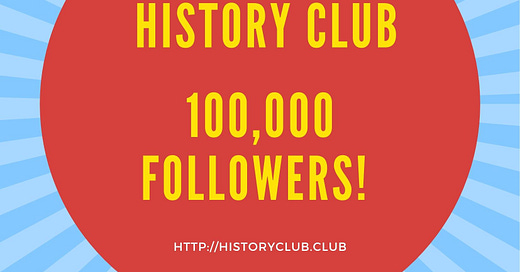History Club has passed 100,000 followers on Clubhouse! This exciting news, just shy of our 1-year anniversary, gives me a chance to look back at the first year of History Club as well as talk about where we’re headed.
I joined Clubhouse on August 12, 2020. At the time, the last thing I thought I needed was another social media account. But, I was deep …




